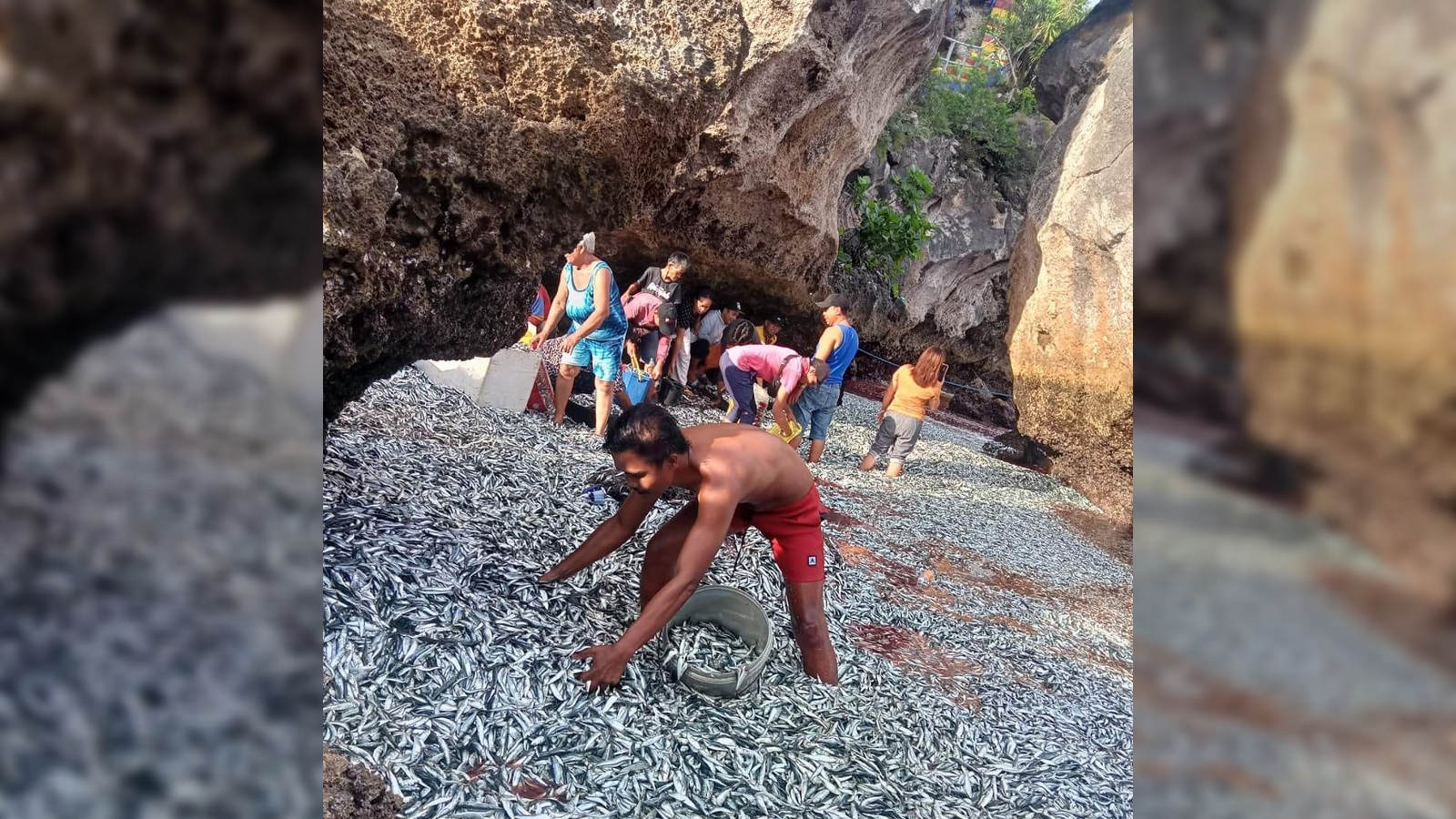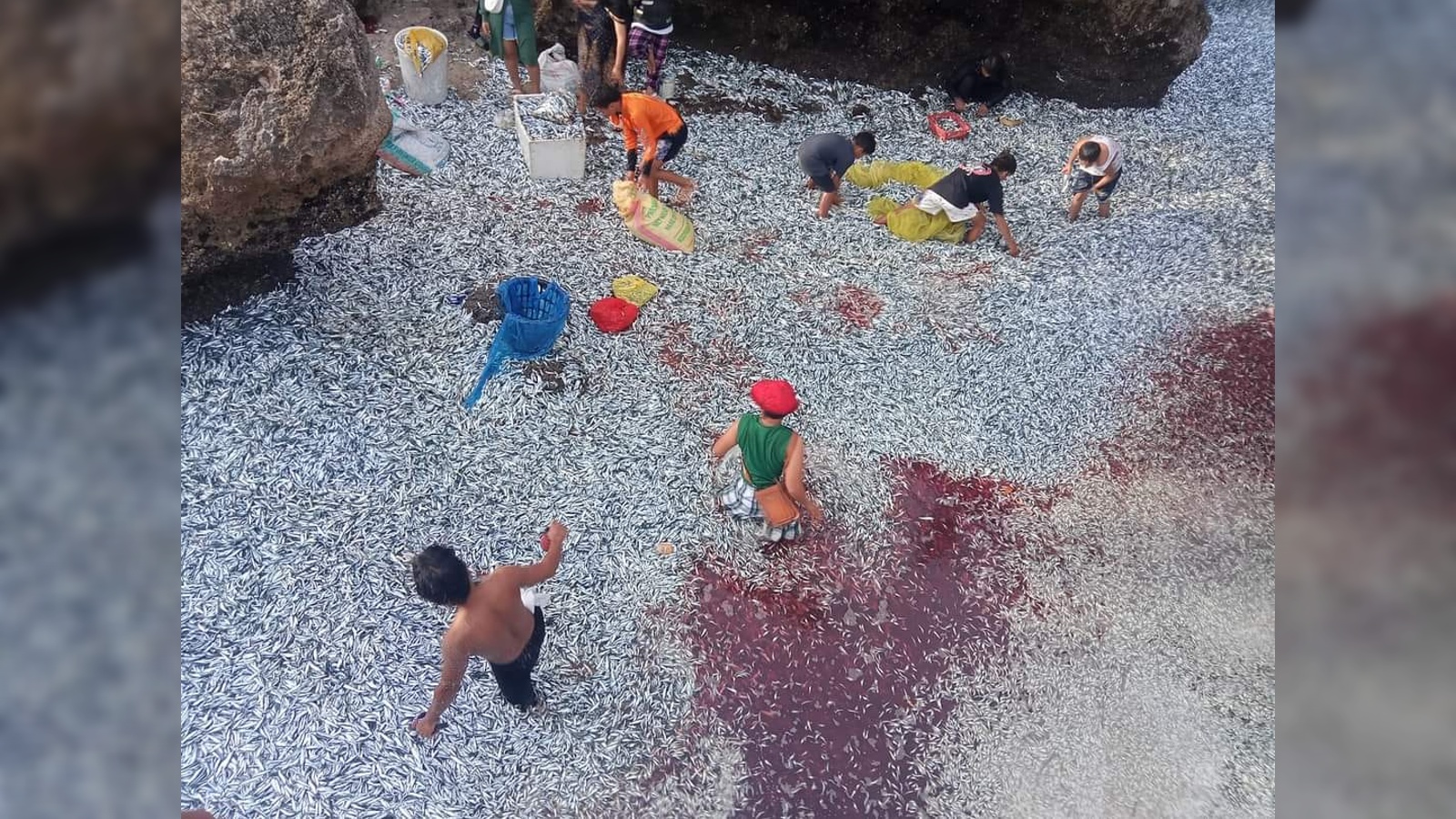Bizarre incident of fish jumping out of water in Philippines caused by upwelling, not earthquake
Countless sardines beached themselves on an island in the Philippines around 48 hours before a major earthquake. But experts say a phenomenon known as "upwelling" was to blame instead.
Get the world’s most fascinating discoveries delivered straight to your inbox.
You are now subscribed
Your newsletter sign-up was successful
Want to add more newsletters?

Delivered Daily
Daily Newsletter
Sign up for the latest discoveries, groundbreaking research and fascinating breakthroughs that impact you and the wider world direct to your inbox.

Once a week
Life's Little Mysteries
Feed your curiosity with an exclusive mystery every week, solved with science and delivered direct to your inbox before it's seen anywhere else.

Once a week
How It Works
Sign up to our free science & technology newsletter for your weekly fix of fascinating articles, quick quizzes, amazing images, and more

Delivered daily
Space.com Newsletter
Breaking space news, the latest updates on rocket launches, skywatching events and more!

Once a month
Watch This Space
Sign up to our monthly entertainment newsletter to keep up with all our coverage of the latest sci-fi and space movies, tv shows, games and books.

Once a week
Night Sky This Week
Discover this week's must-see night sky events, moon phases, and stunning astrophotos. Sign up for our skywatching newsletter and explore the universe with us!
Join the club
Get full access to premium articles, exclusive features and a growing list of member rewards.
A countless mass of sardines — likely numbering in the millions — recently beached themselves on an island in the Philippines, turning coastlines silver as tiny dead fish covered the shore. Around 48 hours later, the area was struck by a powerful earthquake, sparking speculation that the fish may have sensed the impending natural disaster and fled into shallow waters.
However, local experts say that the two events are unconnected and that a phenomenon known as "upwelling" was likely to blame for the unusual mass stranding.
The disorientated fish began to swim ashore in the early hours of Sunday (Jan. 7) on the coastline surrounding the municipality of Maasim, located in the Sarangani province on the southern tip of Mindanao island. Photos and videos captured by residents throughout the night show vast swarms of glittering sardines strewn across the beach and thrashing in the surf as they were swept onto the shore.
Posted by mark.tagum on
As the sun began to rise, locals gathered to collect the dead fish. On one beach, more than 100 people each scooped up between 44 and 66 pounds (20 and 30 kilograms) of sardines each, while one family bagged more than half a ton of the tiny fish, Thai news site The Nation reported. As long as they are properly preserved, most of the dead fish will likely be eaten or sold.
Some locals believe that the unusual phenomenon is a "gift from god" and see it as a sign that the new year will be unusually prosperous, according to The Nation. But others warned that the mass stranding was an omen of natural disaster, Thai news site The Thaiger reported.
Related: 10 creatures that washed up on the world's beaches in 2023
At around 5 a.m. local time on Tuesday (Jan. 9), a magnitude-6.7 earthquake struck in the Celebes Sea, according to the U.S. Geological Survey. The epicenter was around 62 miles (100 kilometers) offshore from Maasim, which fueled speculation on social media that the fish had somehow sensed the impending quake.
Get the world’s most fascinating discoveries delivered straight to your inbox.
However, it's unlikely that the two natural phenomena are connected Cirilo Aquadera Lagnason Jr, a researcher at the Protected Area Management Office (PAMO) of Sarangani Bay who witnessed the sardine beaching firsthand, told Live Science in a message on social media.
Previous research into whether animals can predict earthquakes is lacking, although it's possible that in some cases animals are responding to foreshocks, or mild tremors that precede violent shaking.
In this case, Lagnason Jr believes that the most likely cause was an oceanographic phenomenon known as upwelling, in which nutrients from the deep sea rise to shallow coastal waters, triggering blooms of plankton. The sardines, which feed on plankton, likely followed the blooms into the shallows and got "trapped" making it more likely for them to beach themselves, Lagnason Jr. said. Similar scenarios have previously played out at several other sites across the Philippines, he added.
A majority of the sardines, which could belong to one of half a dozen species in the genus Sardinella, were juveniles, Lagnason Jr. said. This may have played a role in disorientating the group, he added.
Zenaida A. Dangkalan, a fisheries officer in Sarangani, also told The National that a range of other factors could have played a role, including an overabundance of sardines, changes in ocean temperatures or salinity, predator distribution and light pollution from human settlements.
The earthquake happening so soon after the stranding event is likely just a coincidence, Lagnason Jr. said. Earthquakes like this happen all the time in the "Ring of Fire" — a region of high tectonic activity that stretches around most of the Pacific Ocean, including the Philippines, he added.

Harry is a U.K.-based senior staff writer at Live Science. He studied marine biology at the University of Exeter before training to become a journalist. He covers a wide range of topics including space exploration, planetary science, space weather, climate change, animal behavior and paleontology. His recent work on the solar maximum won "best space submission" at the 2024 Aerospace Media Awards and was shortlisted in the "top scoop" category at the NCTJ Awards for Excellence in 2023. He also writes Live Science's weekly Earth from space series.
 Live Science Plus
Live Science Plus













